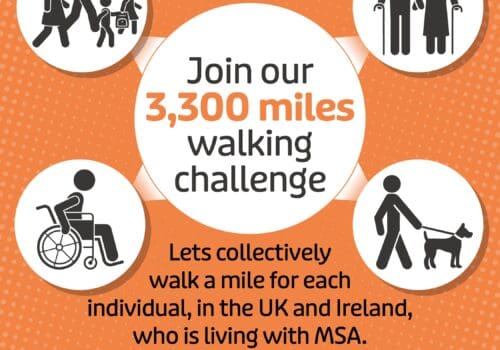Hard to Swallow
This year’s research grant awards
Impaired swallowing (known as dysphagia) is a troubling and distressing feature of MSA which develops during the course of the disease.
This is clear if you look at the MSA section of the HealthUnlocked online Forum. (https://healthunlocked.com/msa-trust/posts) On average dysphagia is moderately serious after 5 years or so. Aspiration pneumonia – food and liquids going into the lungs instead of the stomach – can occur as the problem get worse. I know; my wife died of it. And that is why in serious cases patients may undergo a procedure known as a PEG – Percutaneous Endoscopic Gastrostomy. A tube is fitted which passes through the abdomen straight into the stomach through which food and liquids can be passed. Without it patients can become malnourished and dehydrated. Gastrostomies may be called for in a number of other neurological and non-neurological conditions including Parkinson’s and Motor Neuron Disease. But in MSA a body of evidence for when and how PEGs should be employed and what the outcomes are likely to be in terms of effective disease management and quality of life has not yet been built up. This project intends to address that.
The meat of the project is to create a national registry of MSA patients focussing on swallowing difficulties. The data for each patient will look back at when difficulties appeared, how they progressed and what treatment was given – including whether a gastrostomy was recommended and, if carried out, how effective, acceptable and beneficial it was. More data will be added as patients are monitored and their condition progresses. As we know, the symptoms and progress of MSA manifest themselves in such a variety of ways in separate individuals that the only way to get a meaningful overall picture is to collect and compare a lot of real data. This is what this register will enable and has not been done comprehensively before. But more than that, patients, carers and clinical specialists will all be actively involved in contributing their detailed experiences and insights into swallowing impairments and their treatments. Online questionnaires and surveys and other methods such as working groups, conferences and consultations will be used to structure the register, acquire the case data, analyse the information and draw out conclusions that are important for clinical practice and for the best management of dysphagia in MSA.
Of course that will not be the end of the story. The ultimate aim is actually to formulate a Clinical Care Pathway for the management of swallowing problems in MSA. The detailed patterns that are discerned from the richness of the registry data will provide an evidence base for what treatments are most effective in different varieties of cases – including in what circumstances certain treatments should be avoided. The Care Pathway as elaborated would then be an invaluable and specific tool, universally promoted, for improving and optimising clinical practice in this area.
The Project:
An MSA Clinical Pathways Platform and Patient Registry – Monitoring disease, quality of care and developing evidence-based care algorithms, starting with a Dysphagia Clinical Care Pathway.
Lead Applicant: Dr Viorica Chelban, Queen Square Institute of Neurology University College London
Disclaimer: The views and opinions expressed in the blogs published on these pages are those of the authors and do not necessarily reflect the official policy or position of the MSA Trust.




My wife is in year 10 of MSA.
Swallowing is developing issue.
We have an excellent SALT who has twice organised a video X-ray swallowing assessment.
Currently take daily tablet to counter reflux and that seems to have helped.
Still managing normal foods.
Hoping this does not get worse.
Also the use of PEG gives more points if you are tryingto get nhsfunding because it is a medical matter where sitting for hours trying to coax food down safely counts as care and is means tested because care is local authority
My mum was given a peg on NHS before her swallow got bad so it was ready for use nearly a year before we needed to use it! it has been our saving grace these last few months with all the medicine going through. her SALT lady is amazing!